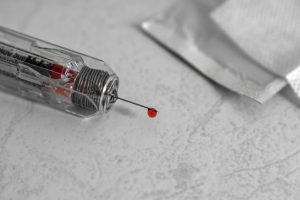Cost to Buy Body Parts on the Black Market
- blood, pint: $25-$337 depending on country
- bones and ligaments: up to a few thousand dollars, depending on the exact part
- bone marrow: $23,000 per gram
- corneas: $24,400 including implanting them
- coronary artery: $1,525—even though coronary arteries aren’t transplanted
- eggs: $12,400
- eyeballs, pair: $1,525
- gallbladder: $1,219
- hand and forearm: $385
- heart: $119,000
- kidney: $!5,000-$262,000 depending on country
- liver: $157,000
- scalp: $607
- shoulder: $500
- skin: $10 per square inch
- skull with teeth:$1,200
- small intestine: $2,519
- spleen: $508
- stomach: $508
Profits on the Black Market
Before you decide to sell a few spare body parts to finance your retirement, be aware of two things: (1) what it costs to buy is not what the seller gets to sell; and (2) where the buying and selling happens makes an enormous difference. For example, consider kidneys and livers.
Kidneys: average paid to buyer, $150,000; average paid to seller, $5,000. Kidney buyers pay $10,000 in Thailand but $300,000 in Singapore. Income to sellers ranges from $650 in Kenya to $200,000 in Ukraine.
Livers: liver buyer in China, $21,900; seller gets $3,660.
If you do want to sell something you can spare, consider selling half of your healthy liver (which can regenerate a full liver for both donor and recipient). Even more lucrative, have your character sell a gram or two of bone marrow at $23,000 per gram. Properly done, it’s quick, with little to no pain. Although it’s legal to donate, selling isn’t. So, yes, it’s illegal, but the payoff is huge: compare to cocaine, at $150 per gram. If you want to stay legal, consider selling enough eggs for an in vitro fertilization cycle for $8,000.
What Powers the Black Market in Body Parts?
Short answer: demand outpaces legal supply. Less than a third of US patients on the kidney waitlist will get a legal kidney to save their lives. Fifty percent of waitlist patients overall die waiting for an organ. It is estimated that 10% of all organs and tissues used in surgical transplants come from the black market.
Writers, in particular, might want to know where these body parts come from. Consider press coverage of organ harvesting from children in Mexico and from prisoners in China. These methods are clearly illegal and/or unethical. Some poor people sell an organ for their own profit. The only country in the world where buying or selling human organs is legal is Iran—and then only if both the buyer and the seller are Iranian citizens.
Human Trafficking, No Disassembly Required
Bottom Lines For Writers
- bits of esoteric info to add to the plot
- benign reasons to buy organs (like transplants)
- macabre reasons to buy organs (like cannibalism, black magic)
- a positive/evil character who is a buyer
- a positive/evil character who is a seller
- reasons to turn to the black market as either
- succeeding—or not
- and on and on and on





